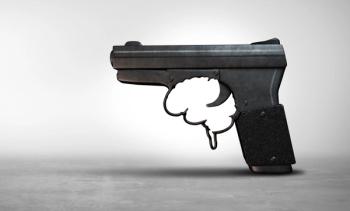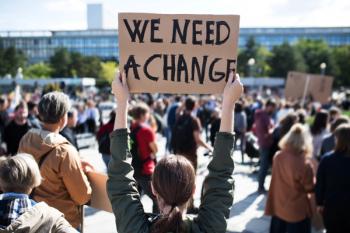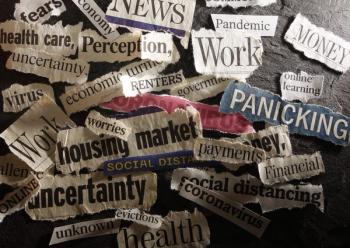
Psychiatry Responds to the Violence at the Capitol
Major psychiatry organizations condemn the actions and events of January 6th.
Major psychiatric organizations like the American Psychoanalytic Association (APsaA) and the American Psychiatric Association (APA) have condemned the violence that took place in Washington DC on January 6th.
“The past few days in Washington have been among the most disturbing in our lifetimes, and arguably in American political history. What we witnessed on January 6th—with horror and sadness—was an attack on the most precious institutions that symbolize our form of government and constituted an assault on democracy itself,” APsaA president William Glover, PhD and president-elect Kerry Sulkowicz, MD, said in a
APA CEO and Medical Director Saul Levin, MD, MPA, furthered this sentiment in his statement: “We, as psychiatrists, are deeply concerned and angered by the violence that has occurred and that may continue in our communities. If you are feeling anxious or unsafe, talk with your family and friends. If your feelings continue and it is impacting your daily life, do not hesitate to seek help through your primary care provider, a psychiatrist or other mental health professional, or other resources in your community.”2
In the APA’s statement, attention was called to the differences in treatment of Black Lives Matter protesters and those who stormed the Capitol: “The stark contrast between the government’s response to Black Lives Matter protesters during the summer and fall, a significant proportion of whom were Black, and its response to mostly white MAGA protesters yesterday, is deeply concerning.”2
The APsaA statement condemned President Trump’s involvement and called for his removal: “This is beyond politics. After refusing to concede that he had lost the election, President Trump sparked an insurrection, inciting a mob to storm the US Capitol. We have long believed that Trump is a dangerous leader, as evidenced by his encouraging right-wing extremists in Charlottesville, Portland, and Kenosha, and his behavior this week makes this apparent to all. The combination of his publicly evident psychopathology and the power of the office he holds constitutes a clear and present danger to the health and well-being of the nation and its people. We support his immediate removal from office, by resignation, impeachment or invoking the 25th Amendment to the Constitution.”1
For those worried about how to console patients or bring hope, the APA offered a few resources, which are provided below.
Those who need immediate assistance can utilize the following hotlines:
-
-
-Veterans Crisis Line (
-
-
The
References
1. American Psychoanalytic Association. ‘Trump is a Dangerous Leader,’ APsaA Calls for Removal. News release. January 8, 2021.
2. American Psychiatric Association. APA Statement on Yesterday’s Violence in Washington. News release. January 7, 2021.
Newsletter
Receive trusted psychiatric news, expert analysis, and clinical insights — subscribe today to support your practice and your patients.







